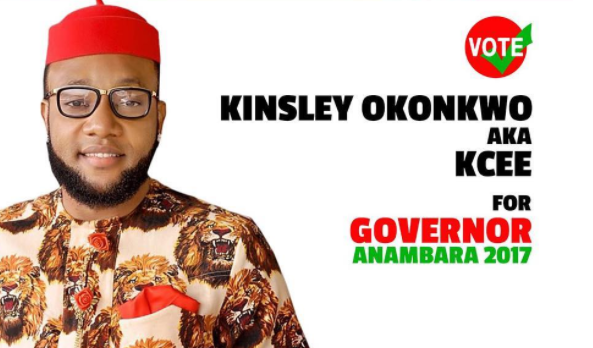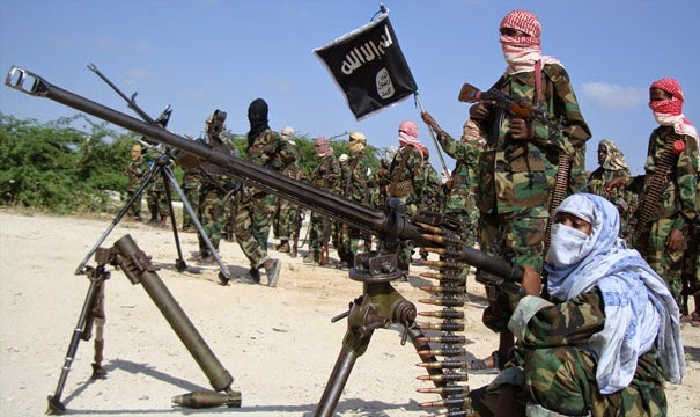By Owei Lakemfa
The 2017 Kenyan Presidential Elections were massively rigged right under the noses of International Election Monitors and Observers, and they consciously or unconsciously, whole heartedly endorsed the fraud. In fact, within
In fact, within forty-eight hours of the elections, the head of the European Union Delegation, Marietje Schaake, a 38-year old Dutch politician was lecturing opposition leader Raila Odinga on how to be sportsmanly and accept defeat: “The electoral process is still ongoing. It is a sign of leadership to be able to congratulate your opponent with grace.”
In March 2002, I was part of the Organisation of African Unity(OAU, now AU) Observer Mission to the Zimbabwean Presidential elections. Three of us from that team came from the trade unions; Andrew Mtagwaba Kailembo from Tanzania, the Malawian, Kelly Zidane and I from Nigeria. We, like many others had been inundated before our arrival about serious violence against the populace by the Robert Mugabe Government.
The fear was that the elections cannot be free. But in the country, we saw no evidence of such violence or voter intimidation. When we asked around, including from some who had made such claims, we were told it ended before our arrival.
Naturally, the three of us had long consultations with the Zimbabawe Congress of Trade Unions (ZCTU) then led by Wellington Chibebe. This was more so when his predecessor, Morgan Richard Tsangirai was the Presidential Candidate of the opposition Movement for Democratic Change (MDC) The OAU observers fanned out around the country especially to the then contentious city of Bulawayo. My group monitored the elections in Chitungwiza, a high density town, thirty kilometres from Harare noted for its stone sculptures.
The Harare Sheraton Hotel was the centre of most international observers and we freely exchanged ideas and shared the information, disinformation, and misinformation flying all over. For example, on our way from Chitungwiza, we decided to make a detour to Mbara, one of the suburbs of Harare.
We then proceeded to our hotel where an agitated British Broadcasting Corporation (BBC) Reporter (names withheld) was waiting for me. I had met him before in Ghana when he was working with a colleague, Mrs. Remi Oyo in an international news agency. He told the group how government security forces had visited mayhem on Mbara and even shot people to intimidate voters.
I asked him for the timeline; it coincided with the time we were there and I confronted him with this fact. He stammered and I told him that as a journalist, he has no right manufacturing and circulating falsehood. He beat a retreat, and avoided me for the rest of my stay.
After the elections, the various groups including the OAU, Commonwealth Delegation led by former Nigerian Head of State, General Abdulsalami Abubakar (Rtd) and Nigerian Delegation led by Chairman of the defunct Interim National Government, Chief Ernest Shonekan met and shared our experiences and tentative conclusions.
All agreed that the elections were transparent, free and fair including in highly contentious areas like Harare and Matabeleland.
It was therefore shocking when the Commonwealth Report on the elections made contrary conclusions and recommendations.
The Team clearly had preconceived ideas and conclusions into which it sought to stuff its ‘observations’ at the elections. It did the childish pranks we practiced as children in primary school when sometimes in Arithmetic, we tried to work towards a known answer. When it did not have sufficient claims to reach its conclusions, the Commonwealth claimed that conditions did not allow the Zimbabawean electorate to freely express its choice.
Based on this falsehood and claims of Mugabe’s resistance on land reforms, it suspended Zimbabwe from the Commonwealth two months later. When the following year, the ban was extended by eight months, Zimbabawe in December 2003, pulled out of the Commonwealth.
My experience in Zimbabwe had made me question the whole basis of International Observers or Monitors; their relevance and affinity with the truth. Generally, I can identify five categories of Election Monitor/Observer groups. One is countries who often use their diplomats; the problem with this is that such ‘Observers’ would work in accordance with their country’s interests.
The second are international agencies or organizations who may bring their internal politics to bear on their assignment like the Commonwealth did in Zimbabawe. The third are international Non-Governmental Organisations (NGOs) who are usually magisterial and meddlesome. The fourth are local NGOs and Civil Society Organisations (CSOs) most of whom in Africa, are dependent on foreign donors and tend to read the body language of their benefactors.
Perhaps the local groups that can be most reliable to monitor elections are mass organisations like labour, professional association like those of doctors and academics and financially self-reliant faith-based organisations. Having said these, let me add that there is no organisation that is value-free, or to put it better, there is no organisation that is not politically-inclined even if it is politically non-partisan. The monitoring and observation of elections are political actions in themselves and we should not delude ourselves that the participants are necessarily neutral; therefore, their usefulness to the process of democratization and overall impact, is marginal.
In the particular case of Kenya, the Supreme Court said it was “satisfied that the 1st Respondent ( the Independent Electoral and Boundary Commission) committed irregularities and illegalities inter alia, in the transmission of results” It therefore made a declaration that the “Presidential Election held on 8th August 2017 was not conducted in accordance with the Constitution and the applicable law rendering the declared result invalid, null and void”
Perhaps the plan for the rigging was perfected one week before with the murder Chris Mando who was in charge of the computerized voting system. He had been tortured and had deep scratches and cuts on his back and hands when his corpse was discovered in a forest.
Kenya, and by extension, the rest of Africa face a dilemma in Kenya. In the light of such fraudulent manipulation of the electoral process, can the Electoral body be entrusted to conduct free, fair and credible elections within two months? Can an electoral thief who has not owned up, has shown no remorse and has not been punished, said be repentant enough to carry out its statutory function of conducting fraud -free elections?
If caution is not exercised, Kenya which is already wracked by terrorism and defined by blatantly ethnocentric politics, may become fractured in the rerun elections. Perhaps this is when the African Union needs to come in; do some trouble shooting, confidence-building and help work out an electoral and political path that would meet the approval of the main electoral and political contenders in the country. Over reliance on elections and a likely disputed outcome, might be dangerous.


